Geography knowledge Normal Math Worksheets
6 filtered results
-
From - To
Discover our "Geography Knowledge Normal Math Worksheets," designed to make learning engaging and enjoyable for young learners! These worksheets seamlessly integrate geography concepts with essential math skills, helping students enhance their understanding of both subjects. With age-appropriate exercises, children will explore various geographical features while practicing addition, subtraction, and other foundational math operations. Perfect for classrooms or home study, these worksheets foster critical thinking and improve problem-solving skills. Unleash the curiosity of your students as they embark on a journey through maps, countries, and numerical challenges. Download our worksheets today and watch your child’s learning soar!
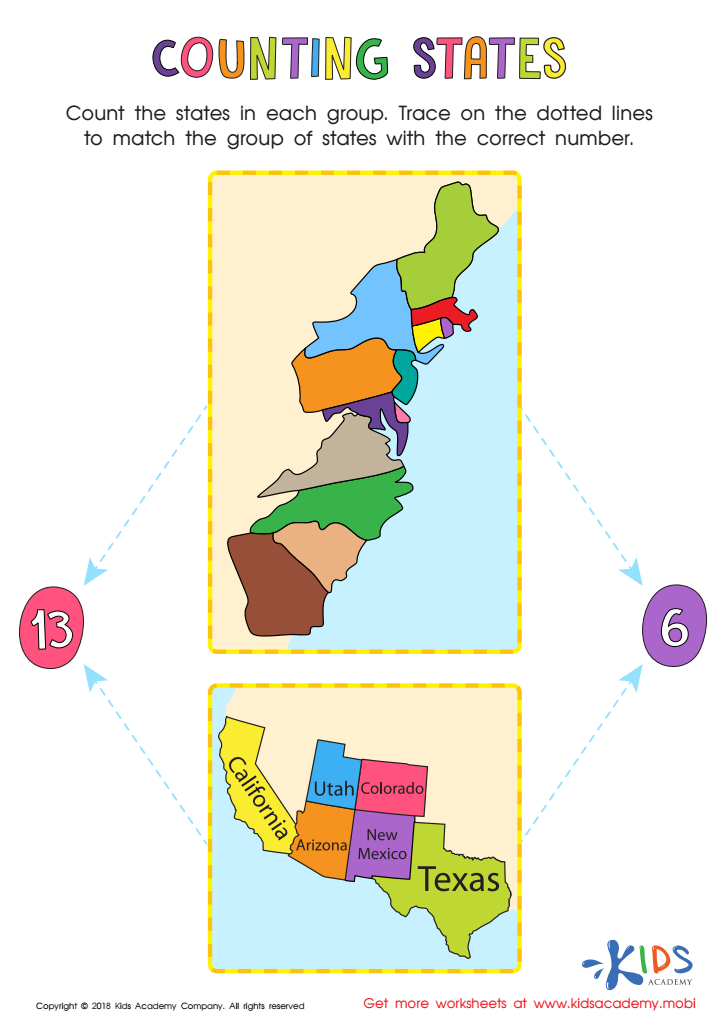

Counting States Worksheet
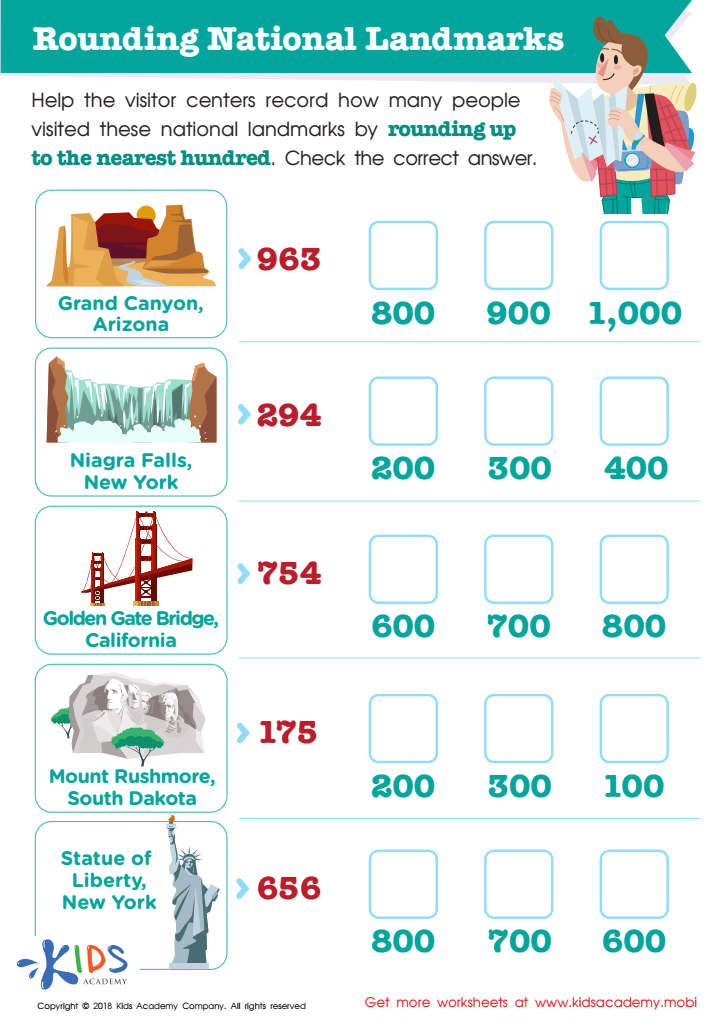

Rounding National Landmarks Worksheet
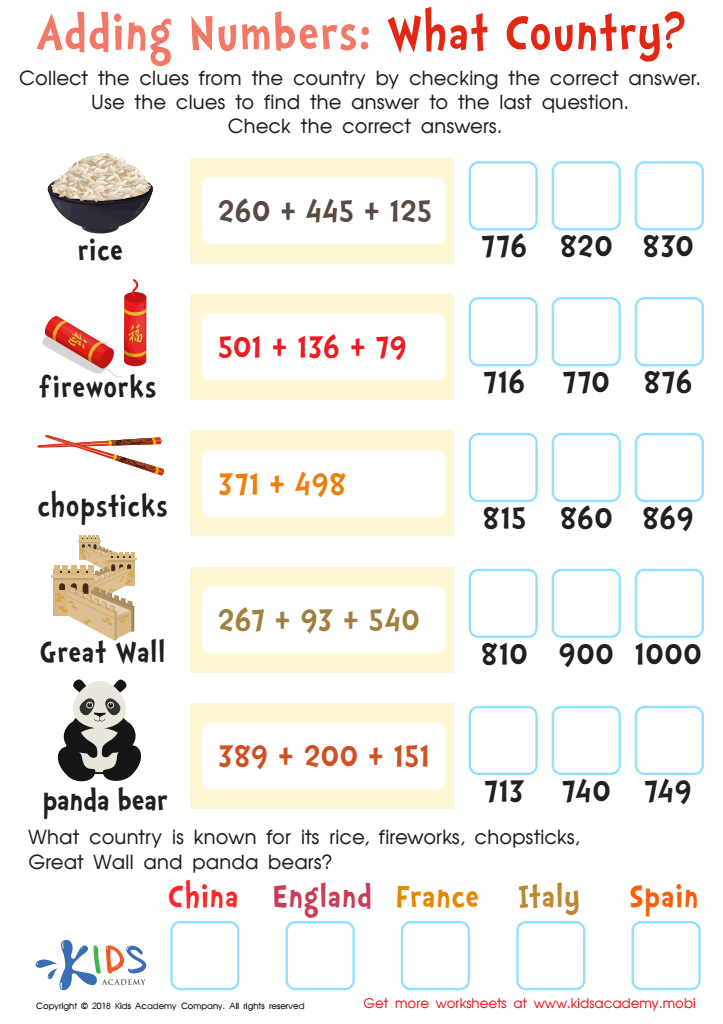

Adding Numbers: What Country Worksheet
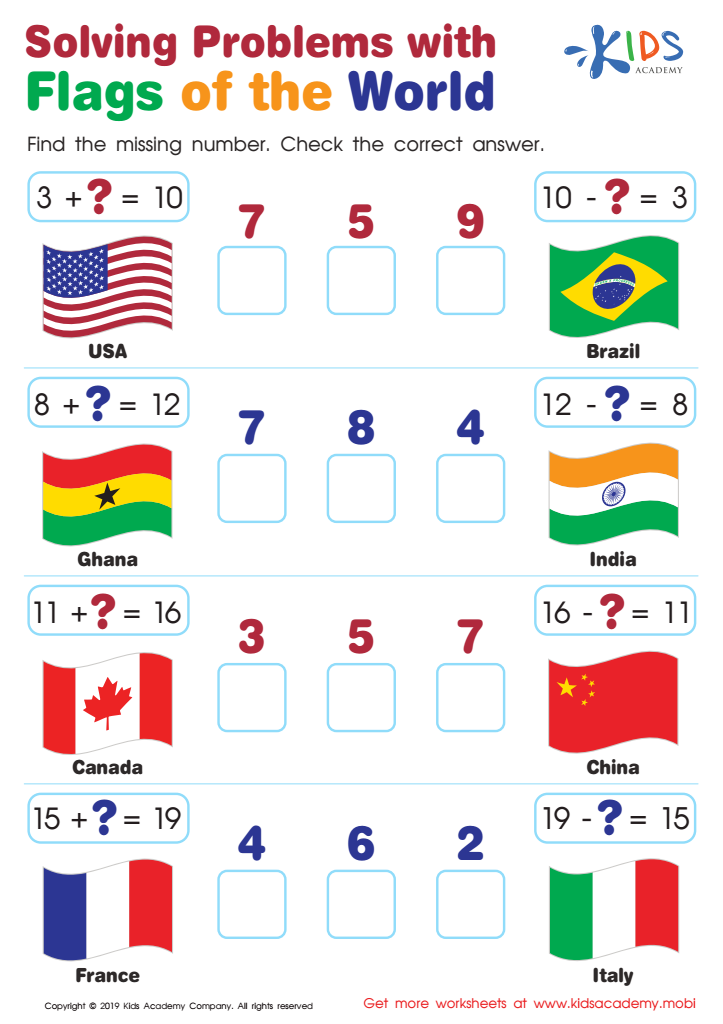

Solving Problems with Flags of the World Worksheet
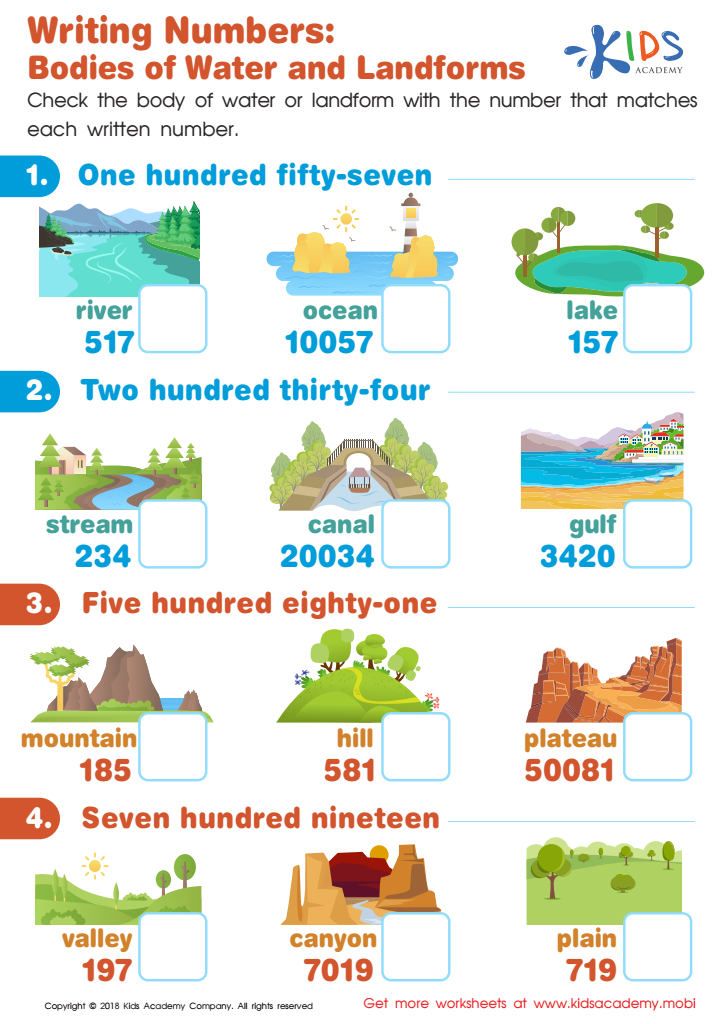

Bodies of Water and Landforms Writing Numbers Worksheet
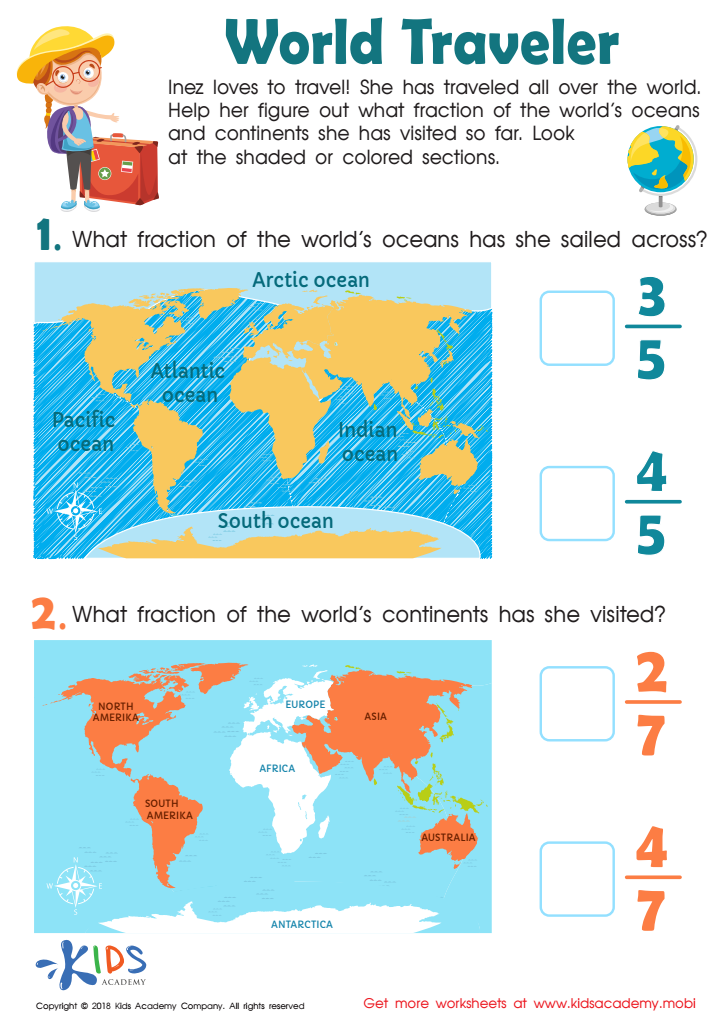

World Traveler Worksheet
Parents and teachers should prioritize geography knowledge alongside normal math instruction because geography fosters critical thinking and global awareness in children. Understanding geography helps students make sense of the world around them—it connects them to cultures, environments, and communities. By integrating geography with math, students learn to analyze data and interpret statistics related to population, resources, and environmental changes, enhancing their problem-solving skills.
Furthermore, geography encourages curiosity about social issues like climate change, urban development, and globalization, making learning relevant and meaningful. This interdisciplinary approach helps children grasp concepts in math through real-world applications—such as mapping distances, understanding scales, and visualizing data trends through geographic information systems (GIS).
In our increasingly interconnected world, geographical literacy promotes empathy and responsible citizenship, as children begin to appreciate diverse perspectives and understand global issues. Educators and parents play a pivotal role in nurturing this awareness, paving the way for informed and engaged citizens. Balancing geography with traditional subjects like math cultivates well-rounded students equipped with the skills needed to navigate and contribute positively to our world. Hence, investing time in geography is not just beneficial; it’s essential for holistic development in early education.
 Assign to My Students
Assign to My Students




.jpg)










